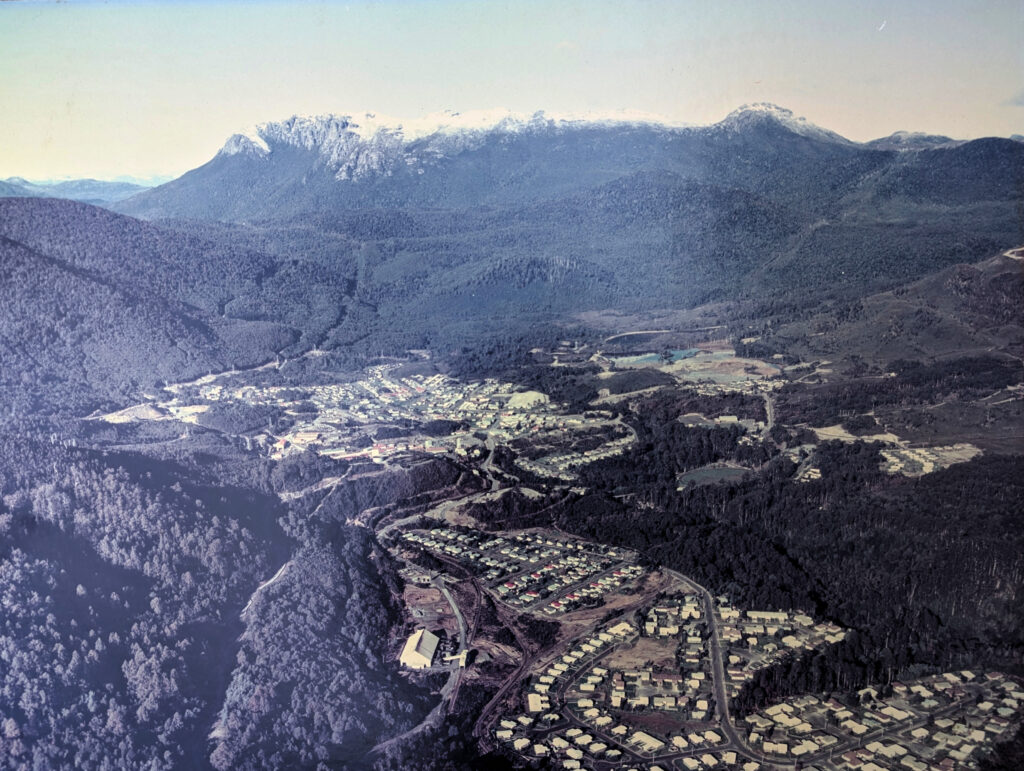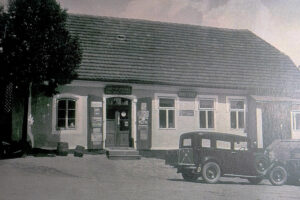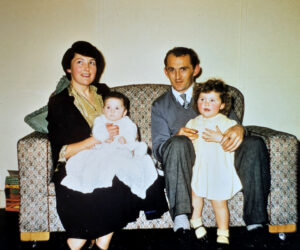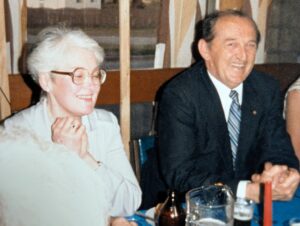Josef Wuchterle-Freeman
I was born on July 5, 1924 in Mrakov, a village near Domažlice in the Chodsko region. I lived together with my two sisters and younger brother Jiří who died at the age of four. My father was a local publican owning the pub „U Wuchterlů“ in Mrakov. This was also the family home. My early life was uneventful and proceeding normally until the Munich Agreement of 1938 and Hitler’s subsequent German invasion. I attended primary school and secondary school in Domažlice, while higher education was unavailable since their German occupiers closed all universities. Hence further education was to be postponed indefinitely and I had to go to work. For a period during the last year of the war I was compelled to work in Germany at a munitions factory, returning back home in early 1945.
I arrived by ship called Skaubryn in Melbourne on February 8, 1952
After the war, life in Czechoslovakia did not return to the old normal. Nevertheless, I attended the Technical University in Prague, studying commerce, and was near completion when I made the momentous decision to leave my home country for political reasons.
After I successfully crossed the border in April 1950 I registered as a refugee and spent nearly two years waiting in Munich. Eventually I was offered a passage to Australia, issued with an IRO Certificate of Identity, and arrived by ship called Skaubryn in Melbourne on February 8, 1952. That is when my new life in Australia began. I was sent to Bonegilla, a migrant reception and training centre where new arrivals lived while they were processed and allocated jobs. I stayed at Bonegilla – it was a large facility converted from Australian Army barracks – for close to four years, working in the camp hospital as a medical orderly. Here I met my first wife Linda with whom I had a daughter, Anne. Sadly, our relationship did not last and I left for Adelaide, South Australia in 1955. I met Berna again, who became my second wife. We had known each other from Bonegilla where she had also lived and worked. We had two children, Elise and Derek. After my marriage to Berna we also made the decision to formally change the surname from Wuchterle to Freeman. The symbolism in the choice of name is obvious. Thanks to Australia, I became a free man after all.
A bit later, we were looking to move away from the city and to a cooler climate. So, I decided to take a chance and move to a remote mining town in Western Tasmania. It potentially offered good employment prospects, housing and the necessary stability for settling and raising a family. In early 1957, we moved to Rosebery.
This mining town of some 3,000 inhabitants was geographically isolated by dense rainforest and surrounded by mountains, the only route in was the railway used to carry the mined ore to the northern port at Burnie. Only after 1960 were road links completed to other mining communities to the south and eventually in December 1963 the important road link north to Burnie was opened. Prior to this all freight and passenger traffic was a slow and tedious rail journey. The climate did not help, averaging one hundred inches of rain annually, being one of the wettest towns in Australia. Many European migrants lived there, including some Czechs and the community was thus lively and cosmopolitan yet with a notable feel of the wild west. Rosebery was a company town run by the mine owners, the Electrolytic Zinc Company of Australasia (EZ Company), who were responsible for providing housing, health services and much of the town infrastructure. This created a level of security and cohesion and residents, who were also company employees, were actually engaged in the running of the town. People may come and go, yet for those who stayed there was ample opportunity to be part of the social and civic fabric. I took advantage of these opportunities and began to involve myself in civic affairs, thanks to my business education. I was able to offer my time and skills in auditing and administrative roles. These included for example auditing and treasury roles with the local tennis and athletics clubs, St Joseph’s Catholic School, St George’s Church of England, Rosebery Returned Servicemens’ League (RSL) and others.
I´m proud of my greatest achievement, building of a new hospital for Rosebery and the surrounding district.
At the beginning, I was employed as a mill hand, that is someone who worked as an operator in the extensive milling operations that produced powdered ore concentrates (zinc, lead, silver and gold) from the mined ore. Following a work accident, where I suffered a broken leg, I applied for and was accepted into administrative work in the mines office. This was actually more suited to my education and skills and over the course of my career I held senior positions in accounts supervision and employment. I was also invited to become a board member of The Montague Medical Union (MMU). This was an entity created in 1920s by EZ Company to fund and provide hospital and medical services to the town. Members of the MMU, that is employees, would pay a small weekly insurance premium and in return receive free health care. Historically, this was one of the first universal health care schemes. I remained on the board until my retirement in 1986. I´m proud of my greatest achievement, building of a new hospital for Rosebery and the surrounding district. This required years of planning for the financing and construction, endless lobbying of State and Federal politicians for funding and approvals, and determination and belief in its realization. It was completed in the late 1970s and provided the community with a much needed modern facility and expanded services. I was awarded an Order of Australia Medal (OAM) for services to my community. This was a very proud moment for myself and Rosebery.
After I retired, we settled in Hobart. Since Rosebery was a company town very few people owned freehold property and upon retirement employees were obliged to move. My retirement years were uneventful save for some travel. I have even visited the Czech Republic twice and always stayed for couple of months.
Josef Wuchterle-Freeman suffered declining health in the following years. He died in hospital on December 13, 1997 at the age of seventy-three from an infection that followed an operation. He was cremated and his ashes scattered at Cornelian Bay, Hobart.







